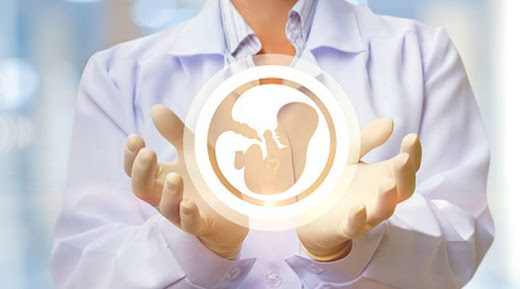A technique as demanding as IVF necessitates a healthy lifestyle and habits. Diet and exercise are the most significant parts of this.
There are several advantages to eating a good IVF diet before and during your treatment, including:
- Providing vitamins and minerals required for optimal egg and sperm health • Providing antioxidants to protect the egg and sperm from free radical damage
- Providing necessary fats that allow reproductive hormones to be produced and operate properly. This promotes ideal hormone balance in the body, which can be especially helpful in cases of hormone imbalance, such as infertility in PCOS patients.
- Maintains a healthy and strong physique in preparation for the early stages of pregnancy.
You must begin following your IVF diet 2-3 months before you begin your IVF treatment to get the most out of its effects.
Also, Read - Indian Celebrities Who Chose IVF
Foods that can help you have a successful IVF cycle
So, now that you know the benefits of eating a well-balanced IVF diet while trying to conceive, where do you start?
As you begin your IVF journey, the best IVF centre in Chennai gives you a quick rundown of the types of meals that may be advantageous to you.
- Water is necessary to function all body organs, particularly the reproductive organs, properly. Every day, it is recommended that you drink 8 to 10 glasses of water.
- Healthy fats: Healthy fats are crucial in hormone balance, immunological function, and inflammation regulation. Oily fish, almonds, eggs, and avocado are all healthy foods to consume. Healthy fats can also be found in olive oil, which can be used in cooking.
- Protein: Protein is required for cell growth and repair, as well as for regulating blood sugar levels in the body. Protein is also required for the production of hormones.
Plant protein is thought to be healthier, and reproductive clinics recommend substituting peas, beans, almonds, and soybeans for meat.
- Fiber: Fiber aids in the clearance of toxins from the body, including excess reproductive hormones, assisting in balancing these levels. Fibre is abundant in fruits, vegetables, grains, cereals, and nuts.
- A low-carbohydrate diet is beneficial: In a recent study, researchers from the best IVF centre in Chennai discovered that reducing carbs in your diet improves your chances of conceiving. Compared to women who ate a carb-rich diet, the success rate of IVF was over 50% higher in women who ate a low-carb diet.
- Supplements for women who are on a fertility diet:
Additional supplements suggested by the best fertility clinic in Chennai include:
- A high-quality prenatal multivitamin
- L-Arginine
- DHA or EPA omega 3 fish oil, for example
- 400 mg of folic acid per day is commonly given to women to help them prepare for pregnancy.
Many of these supplements are also advised by the fertility hospital to boost the odds of IVF success in people who have had poor treatment results.
IVF Foods to Avoid
Certain foods and beverages are harmful to your fertility and should be avoided in men's and women's IVF diets.
- Caffeine
- Alcohol
- Soy
- Processed meals
- Too much sugar
- Mercury-rich seafood, such as swordfish, shark, and tuna steak
- Trans fats that clog arteries
Incorporating these dietary recommendations into your daily routine may improve your odds of IVF success and your chances of having a healthy pregnancy.
Also, Read - avoid foods during IVF cycles
Exercise during IVF
While light to moderate exercise is permissible during IVF therapy, individuals should be cautious about their workouts. In general, you should perform the following exercises during IVF:
- Stay in your comfort zone.
Patients should exercise within their comfort zone while considering IVF and exercise. What exactly does that imply?
For example, do not begin a vigorous workout routine before the IVF process begins if you have never done so before. You might continue to be active during the early rounds of IVF if you were already very active.
- Do not engage in high-intensity cardiovascular exercise.
Changing a long-standing fitness programme might be frustrating for some people. It is critical, however, that you avoid it.
There are several causes for this. Because high-impact activities might cause ovarian torsion, patients are advised to avoid them during the IVF treatment. The ovaries enlarge when having IVF treatment. The larger ovaries will likely become twisted due to strenuous aerobic sports like jogging, complicating the IVF treatment process.
- Do not exceed four hours of activity per week.
Exercising for more than four hours each week may reduce your chances of success with IVF. Make it a rule not to exercise for longer than this during IVF and even less during certain stages of treatment.
- Concentrate on low-impact activities that help you relax.
Large body movements that pull blood away from the ovaries and uterus should be avoided during IVF and exercise. As a result, we advise against doing high-intensity interval training, abdominal workouts such as crunches, or heavy weightlifting.
Also, Read - Why couples should opt for IVF
Instead, the greatest activities are meditative, low-impact, and attuned to the breath to help you get through this difficult time. Walking, yoga, gentle stretching, and water activities like aerobics and low-intensity swimming are some of the IVF exercises recommended.
Other stress-relieving techniques, such as fertility massages, acupuncture, reading, crafts, or meditation, might be incorporated into your routine.
While these workouts are typically considered safe during treatment, your doctor or fertility center may encourage you to stop exercising at particular points. Always follow their IVF and workout directions to the absolute.
Maintaining a healthy lifestyle thus becomes very necessary for the proper development of the baby as well as the health of the mother during such a complicated procedure. As advised by the best IVF center in Chennai, with proper exercise and a healthy diet, a lot of complications can be eliminated.
Also, Read - IUI Treatment: What to Expect?



